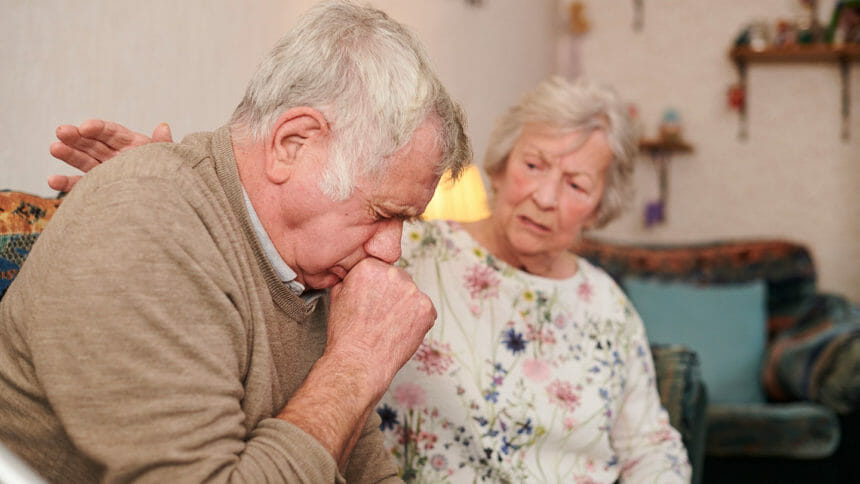
The hospitalization rate for seniors with respiratory syncytial virus, also known as RSV, is 10 times higher than usual for the season, according to a report by CNN, citing federal data. With no vaccine yet approved, certain older adults are especially at risk of infection and poor outcomes.
The news comes nearly 18 months after nursing home clinicians were alerted to unusual summer outbreaks of RSV by the Centers for Disease Control and Prevention. The disease’s symptoms are similar to those of flu and cold. It is most prevalent in very young children, yet can also be dangerous in older adults with chronic illnesses and those who are immunocompromised.
In June 2021, the pandemic had disrupted the typical timing of RSV season, which usually peaks in December to mid-February. In early January 2022, physicians were called on by federal health officials to recognize the disease’s potential to cause serious lower respiratory disease as does influenza.
Adult cases rise
This year, the adult RSV case rate remains low when compared with those among young children, who have overwhelmed pediatric hospital wards in some areas. But adult cases have risen compared to last year, when more seniors were taking precautions against respiratory infection due to the pandemic, an infectious disease expert told CNN.
The risk of adverse outcomes from the disease is especially high among seniors aged 65 years and older, according to the CDC. In the United States each year, it is estimated that between 60,000 to 120,000 older adults are hospitalized and 6,000 to 10,000 die due to RSV infection, the CDC stated in a fact sheet. In industrialized countries overall, 14% of the 1.5 million seniors estimated to have contracted RSV in 2015 were admitted to a hospital, CNN reported.
Vaccines not yet ready
Among seniors, those with chronic heart or lung disease and those with weakened immune systems are at the highest risk for severe disease, according to the CDC.
Although various vaccines, monoclonal antibodies and antiviral treatments are being studied, there is as yet no treatment for RSV. Four vaccines are advanced enough in the clinical trials process to be near review by the Food and Drug Administration, and “more than a dozen” others are in trials, including some that include seniors, CNN reported.
According to the CDC, initial symptoms of RSV infection are typically mild and cold-like, including runny nose, sore throat, cough and headache. But it can sometimes lead to serious conditions such as pneumonia and congestive heart failure. It can also exacerbate symptoms in people with asthma and chronic obstructive pulmonary disease.
Standard precautions against infection are the same as for other respiratory viruses, including hand washing and staying distanced from people who are ill.
The National Foundation for Infectious Diseases has published a resource for clinicians and other stakeholders. “Call to Action: Reducing the Burden of RSV across the Lifespan,” is available on its website.
Related stories:
Infectious disease experts call on clinicians to recognize threat of RSV in elders
RSV disrupts daily functioning of older adults, study finds
SNF residents’ acute-care respiratory readmissions rise alongside community flu rates: study
Off-season RSV infections hit the South; CDC urges testing in long-term care
RSV shot prevents pneumonia with 80 percent efficacy in older adults, J&J say
GlaxoSmithKline plans Shingrix push; new RSV shot for elders in works




